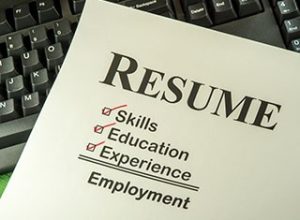 Table of Contents:
Table of Contents:
If you have ever wanted to work in the government or hold a position that can make real change in the world, the Senior Executive Service (SES) may be for you. These individuals work to make sure that the United States government operates at the top quality and works for the nation’s needs, policies and goals.
To fill these federal leadership positions, the application process is designed to comb through all the candidates and select only the best. Holding an SES position is worth the challenge, as it promises a fulfilling career.
To learn about the Senior Executive Service, read this guide. The staff at SES Writers has compiled everything you need to know to land the federal leadership position you want. For guidance on your SES application, contact us today.
The Senior Executive Service (SES) is a group of dedicated civil servants who work in the Executive Branch of the U.S. government. SES employees are proven leaders who have made significant contributions, achieved important professional accomplishments, and are committed to serving the public interest. There are SES roles in nearly every government agency, and they form the link between Presidential appointees and lower-ranking civil servants.
To qualify as a member of the SES, an employee must hold one of the following:
SES positions, by law, may not exceed a certain percentage of total positions. How many positions are permitted depends on the type of SES role. For example, limited appointments must stay below 5% of total SES positions. In addition, to qualify as an SES position, a role must do one of the following:
The federal government classifies most employee positions by grade. These grades determine title, salary range, duties and responsibilities, and necessary qualifications. According to the Office of Personnel Management (OPM), positions above General Schedule 15 include most managerial, supervisory, and policy roles.
Not every managerial or policy-oriented position is part of the SES. Excluded positions include:

Senior Executive Service (SES) positions typically attract candidates with a long track record of distinguished professional successes. SES candidate personalities often include individuals who are driven to succeed, competitive, passionate about work, and determined to persevere, even in challenging times. The Qualifications Review Board assesses potential SES candidates for viability in an array of positions, not only for the position that the candidate wants to hold.
Outstanding leaders who demonstrate a clear and consistent professional track record may be considered for the Senior Executive Service (SES). Members of the SES are senior government employees who act as the liaison between the office of the President and rank-and-file agency employees.
SES positions are highly coveted, and competition for these roles is fierce. Up-and-coming leaders who wish to become a member of the SES, but who may not have achieved the skills or accomplishments necessary to pass a Qualifications Review Board examination, may apply to enroll in the Candidate Development Program (CDP).
The SES CDP is a succession management program created by the Office of Personnel Management. The CDP prepares and nurtures talented senior leaders, so they may grow into a future role with the SES. Individuals who graduate from the CDP with approval from the Qualifications Review Board may be able to move into an SES career appointment directly, without having to compete against other qualified candidates.
Graduating from the CDP greatly improves the chances an individual will win a role within the SES, but it does not guarantee it. In addition, gaining admittance into the program is not required to secure an SES post. Nevertheless, competition for spots in the CDP is fierce, and the vast majority of applicants fail to win a place in the program.
There are multiple CDPs tailored to suit the succession and organizational needs of individual agencies. Most agencies require CDP candidates to have earned a grade of GS 14 or GS 15. The programs themselves feature:
During the program, a candidate will:
 How SES Members Are Hired
How SES Members Are HiredEarning a career appointment to the Senior Executive Service (SES) is an honor that reflects an impressive professional record, a drive to innovate, an ability to lead others, and a commitment to serving the public interest. Thousands of individuals apply to the SES each year, but only the most qualified will be accepted.
Some candidates join the SES through an agency-sponsored Career Development Plan, while others join the SES without having worked for the federal government at all. Regardless of the career path you’ve chosen, you can begin your journey to the SES today with the help of the experts at SES Writers.
Federal law requires that every SES employee earns a position through merit-based competition. Each agency develops its own SES staffing process that directly reflects its own needs. The agency defines its own selection method, writes its own advertising, performs a cursory review of candidates using its own Human Resources specialist, and ranks the applicants based on individual qualifications.
People who want to become an SES member follow this series of seven steps:
Senior government executives face distinct challenges. To effectively meet those challenges with the right solutions, they require strong leadership skills, a visionary mindset, a team-focused attitude, and an exemplary commitment to serving the public interest. Individuals who demonstrate these attributes through important career accomplishments and an ability to produce superior results with limited resources may be qualified to join the Senior Executive Service (SES).
The SES is composed of talented men and women across nearly every federal agency in the Executive Branch of the United States government. These professionals act as liaisons between top Presidential appointees and the rank-and-file federal employees in their respective agencies. In this position, members of the SES will:
There is competition for SES positions among qualified candidates. When an announcement is made for a new position, it attracts driven executives from within and outside the federal government. To earn a position, a candidate must successfully compete against hundreds of other candidates and pass through a grueling interview process that requires two certifications by independent boards. To earn certification, a candidate must demonstrate that he or she meets the required SES qualifications and competencies.
 Executive Core Qualifications
Executive Core QualificationsSES Executive Core Qualifications (ECQs) define the specific attributes agencies look for in a Senior Executive candidate. Although each agency creates its own application, review, and certification process, final candidates for every agency must demonstrate concrete accomplishments in these areas. In addition, review boards consider whether candidates are a good fit for a range of SES roles beyond the role for which the candidate is applying for.
To meet the ECQs, candidates must effectively demonstrate that they:
The top SES candidate demonstrates the SES competencies with ease. While they may be difficult in practice, they lead the motivated and focused professional to succeed. They are what separates the average candidates from the best.
The successful SES candidate demonstrates:
The Senior Executive Service (SES) consists of key leaders within certain federal agencies of the Executive Branch. Securing a position is difficult because they are prestigious and hold a considerable level of authority — Senior Executives rank just below top Presidential appointees and can lead hundreds of people in an agency. SES salaries are not as high as jobs in the private sector but are among the highest in the federal government.
The federal government classifies most jobs in a grading system known as the General Schedule. The grading system defines a title’s acceptable salary range, duties, and responsibilities. SES salaries are not included in this grading system, however. Each agency can set its own SES salaries, although total pay cannot exceed the salary of the Vice President, and maximum pay depends on whether or not the agency is certified for SES performance appraisal.
SES employees who live in costly urban areas also do not receive a locality pay adjustment. The minimum SES salary is 120% of the base pay for a General Schedule 15 (GS-15) job. GS-15 jobs, and sometimes GS-14 jobs, are the minimum qualification to apply for an SES position.
 SES Resume Tips
SES Resume TipsIf you are considering applying for a position within the Senior Executive Service (SES), you have achieved a career defined by important accomplishments, integrity, leadership, and vision. Applying for an SES position may be unlike any other job application process you’ve navigated before. Following instructions precisely is essential, and failure to include relevant documentation — or even using improper formatting — may cause your application to be rejected before it has even been reviewed.
The professional team at SES Writers has helped successful, achievement-oriented candidates apply for SES positions for over 25 years. We are the leading firm in the industry and are outstanding in the career management service field. Our clients are very successful in landing interviews, and 99.6% of our candidates are satisfied with our services. When it comes to expertise in SES, no other firm can match the career management services provided by SES Writers.
The most important thing about your SES application is that following instructions precisely is essential to success. When preparing your SES application package, be sure to:
When reviewing the format of your SES application, remember to:
While following the instructions for your application is essential, what matters most in terms of content is the quality, breadth, and depth of your professional experience. Some of the information you will need includes:
You’re a professional who is accustomed to success. You are a skilled team builder who knows when to tap a valuable resource. When it comes to positioning yourself for an accomplished future with the Senior Executive Service, SES Writers is the experienced partner you need to achieve your professional goals.
SES Writers is the leading SES career management firm in the industry. We are the only firm in the world that has earned ISO 9001 registration and continues to use the quality process and best practices. We write content-rich resumes that highlight your accomplishments, succinctly and correctly. With four decades of experience writing SES applications, we can help you achieve an SES position where you can transform government — and it all starts with your resume.
For more information about SES Writers, contact us for a free consultation.